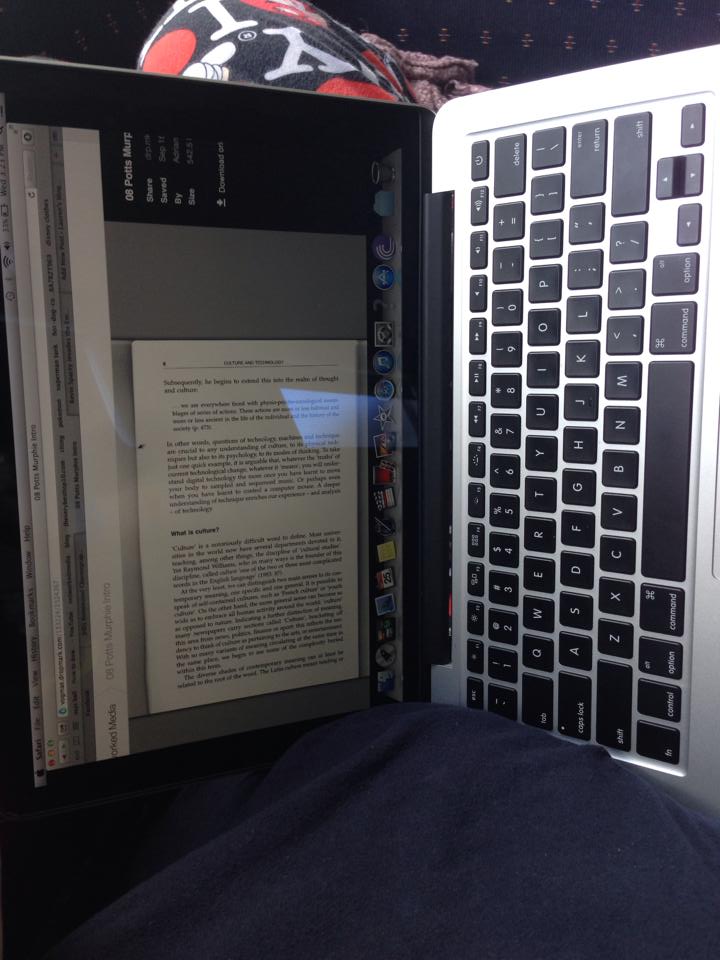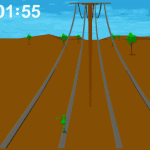so, last week’s networked class started off like your typical normal class. you know, discussion of the readings, the lectures, the network. then it kinda got turned a bit sideways. who do we have to blame for that? i guess just me mostly. i’m a terrible influence. i was the same in high school, i liked to make classes fun but that often happened at the expense of the other students’ learning. mah bad.
so, may as well start off with the actual content of the lass discussions, before my, let’s call it immaturity, took hold. well, we were responding to the topic raised in the symposium about games and narratives and hypertext. i think the problem with discussing games in this context is that there are so many different types of games, it’s impossible to put any one label on them or place them in a specific group. all games are different, from board games like chess where the aim is to win, to simple games like Tetris where you just don’t want to lose to more complex games like (here we go again) kingdom hearts where you follow a narrative which drives the game. but i spoke about all that last week. what i thought was most interesting in our class discussion was the inclusion of a type of game that i had never considered…. sports games.
there are so many different types of sports too. are they all games? you can have a footy match, thats a game. but is a running race a game? you still want to win it, just like a footy game. is there anything other than games that we want to win? i guess competitions. but are those games? you know, like the lottery. well, i guess they could be. anything could be game if you want it to be a game. just as we were asking, “but is sport, like a running race, really a game”, someone in class brilliant mentioned what we all call “the olympic games”. i guess i’d never thought of them actually as games. but that’s what it is, one giant game with every country trying to win.
so, how can a sports game like that be a narrative? well, a sports game has a beginning, middle and end. but not sure how much further their similarities go. i guess there are just too many types of games to ever be able to definitively decide whether or not it can be a hypertext narrative. but i’m gonna go with it cant’. i mean, maybe some can, but definitely not all of them.
as for the rest of class, well, this won’t really be funny unless you were there. but we were put into new groups and this time got to choose our own niki subject. yeah, goodbye calculator inventor from the 1800’s and random guy from this century that no-one has ever heard of (i’m looking at you david gauntlett). we got to choose our own topic. well, most of the good ones had been snatched up by then (curse whoever took facebook) but there were some good options left, like apple. and someone else in my group thought medium would be interesting.
but there i stopped him. what is medium?? i mean, medium is really just a word (as apple is not only a company but a fruit, but we’ll get to that). there are lots of different meanings of the word medium and i couldn’t even be sure which one of those was intended by whoever put medium on the niki index (probably adrian). i mean, i looked up medium, and theres a blog website/forum/something-or-other called medium (which, lets be honest, is probably what adrian wanted), then there’s medium as in, something that delivers a media. you know, like a tv, or a radio, or a cinema, or a computer or phone or really anything. in this sense of the word, almost anything could be a medium!!!!!! (just so you understand, we were having a very vocal conversation about this in class with elliot. i’m pretty sure if he didn’t think i was crazy before, he does now) And then there’s the other form of medium which is…. psychics!!!! you know, like the tv show… medium!!! and so, just because i really don’t like this entire niki project, and i was so annoyed at the ambiguity of the entire “medium” option even being on that list, i somehow managed to convince my group to do our niki entry on psychics communicating with ghosts to solve crimes to do with the online network. don’t even ask. i am insane. and i know it. and now my whole class knows it too.
oh, and if you were wondering where i was going with the whole “apple” thing, i was still annoyed at this whole project and wanting to do something that they didn’t want us to do. so with apple i was completely planning on making the entry about the fruit itself (and, you know, the network of apple trees, the different types of apples, and the fruit business) instead of apple the company. i think it’s a pretty good idea. to bad i got so excited by the psychics idea that i got sidetracked. who knows, still 1 niki left to do!!!!






 Now, to me, that sounds crazy. as you all know, i am a traditional book lover. and i will read my books over and over again. but to me it does get a bit repetitive and i often find myself wishing that the book could change somehow.
Now, to me, that sounds crazy. as you all know, i am a traditional book lover. and i will read my books over and over again. but to me it does get a bit repetitive and i often find myself wishing that the book could change somehow.